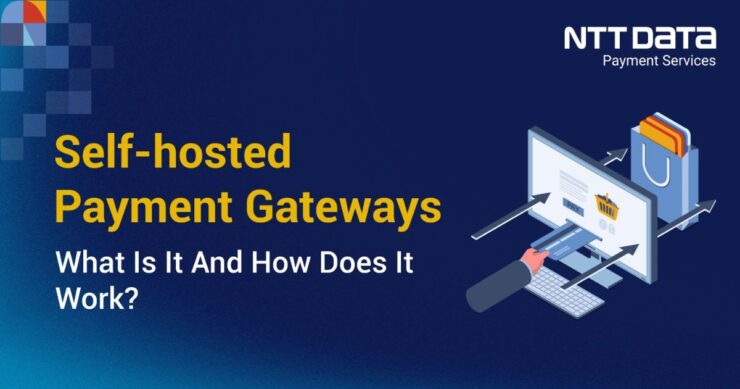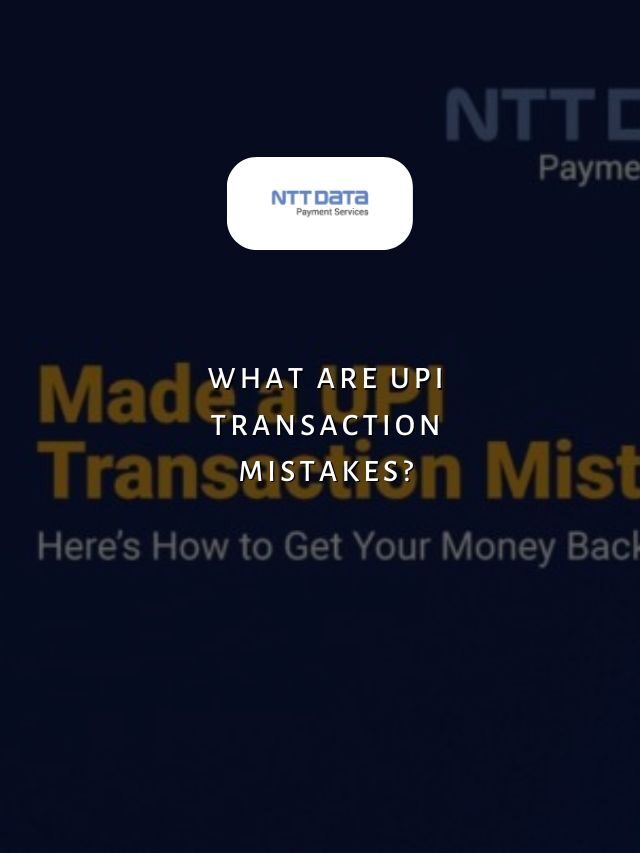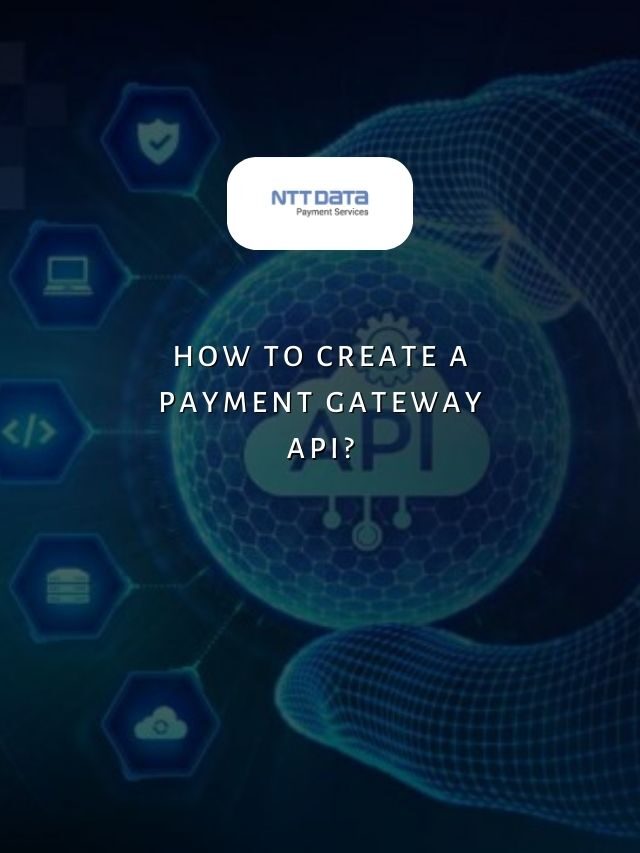
Table of Contents
- 1 Understanding self-hosted payment gateways
- 2 What is a self-hosted payment gateway?
- 3 Recent Web Stories
- 4 How does a self-hosted payment gateway work?
- 5 Benefits of a Self-hosted Payment Gateway
- 6 Is a Self-hosted Payment Gateway Right for Your Business?
- 7 Access secured and seamless online payments with NTT DATA Payment Services
- 8 Conclusion
- 9 Self-Hosted Payment Gateways: FAQs
A self-hosted payment gateways allows merchants to securely accept online and mobile payments without relying on a third-party payment processor. In this blog, we will discuss a self-hosted payment gateway, how it works, and the key benefits of using one.
Understanding self-hosted payment gateways
A self-hosted payment gateway gives merchants more control over their payment processing than a traditional third-party gateway. With a self-hosted payment gateway, the merchant hosts the payment software on their own web servers rather than relying on an external provider to process transactions. This allows merchants to have full control over the payment experience and data without compromising on security.
What is a self-hosted payment gateway?
A self-hosted payment gateway is payment processing software that merchants install on their own web servers to securely accept online and mobile payments directly. With a self-hosted payment gateway, merchants avoid relying on an external payment processor and instead have full control over the payment acceptance process.
Recent Web Stories
How does a self-hosted payment gateway work?
The basic workflow of a self-hosted payment gateway is:
- The merchant signs up for an account with their acquirer or bank to connect to the payment networks.
- They download and install the self-hosted payment gateway software on their web servers. This could be an on-premise installation or hosted as a virtual appliance in the cloud.
- Customers are directed to the merchant’s checkout page to enter their payment details like card number, expiry date, and CVV when making a purchase.
- The self-hosted payment gateway securely sends the payment details to the respective payment network or processor for authorisation.
- Once authorised, the transaction response comes back to the merchant’s payment gateway, which then redirects customers back to the merchant’s website with a confirmation.
- The acquirer facilitates funds settlement between the merchant’s bank account and card issuing banks.
- Transaction data, like sales, refunds, etc., are securely stored on the merchant’s own servers with the self-hosted payment gateway.
- Periodically, the business logs into the payment processor’s merchant portal to view statements, settle transactions and manage accounts.
The self-hosted gateway acts as the middleman. It receives card data from the business’s website, forwards it securely to a processor, and handles the response. The main difference is that everything runs through the business’s own server rather than a third-party system.
Benefits of a Self-hosted Payment Gateway
There are several advantages for merchants to use a self-hosted payment gateway over-relying on a third-party provider:
1. Full control: With a self-hosted payment gateway, merchants avoid dependencies and have complete autonomy over their payment flows, branding, and data.
2. Security: Sensitive payment information is hosted securely on the merchant’s own infrastructure rather than external servers, minimising risks.
3. Customisation: Checkout pages can be customised easily as per business needs without involving developers for every small change.
4. Independence: Merchants are not tied to any particular payment processor and can switch providers seamlessly.
5. Performance: Loading payment pages faster since they are hosted locally rather than on remote servers.
6. Scalability: The self-hosted payment gateway can scale easily with business growth by adding more servers.
7. Compliance: Merchants remain compliant with PCI DSS and other payment security rules by hosting payment pages themselves.
8. Cost Savings: Overall total cost of ownership is lower than paying third-party processor fees in the long run.
Is a Self-hosted Payment Gateway Right for Your Business?
A self-hosted payment gateway is a good way to get your online payments only under the specific needs and resources of each business. In general, self-hosting may be a good fit if:
- The business has strong in-house development capabilities and PCI compliance expertise.
- Handling sensitive customer payment data on an external system is a major concern.
- Very customised payment workflows or integrations are needed beyond standard gateways.
- Transaction volumes are relatively low and predictable for easier scaling.
However, most small-to-medium businesses are better served using an external payment gateway service to avoid the high costs and responsibilities of self-hosting. Gateway providers have economies of scale and specialist knowledge to securely and compliantly process payments for thousands of merchants.
Access secured and seamless online payments with NTT DATA Payment Services
NTT DATA Payment Services offers a reliable and feature-rich payment gateway that supports all major payment types and provides advanced fraud protection and detailed transaction reports.
NTT DATA Payment Services offers a complete payment solution to advance both your offline and online businesses from,
- Online Payment Gateway
- POS machines
- IVR payments
- Mobile applications, and
- Bharat QR Scan and Pay
We ensure maximum comfort, convenience, and safety for all your payments.
Conclusion
A self-hosted payment gateway provides a robust way for merchants to take charge of their payment processing. Compared to third-party gateways, it offers more independence, security and customisation. While involving an initial setup, self-hosted payment gateways save ongoing costs and allow for easy scaling with business growth. They ensure merchants have full control over their payment flows and data.
| Also, you can get frequent updates on nttdatapayments Instagram page. |
Self-Hosted Payment Gateways: FAQs
1. What is a self-hosted payment gateway?
A self-hosted payment gateway is payment processing software that merchants install on their own web servers to securely accept online and mobile payments directly without relying on an external payment processor.
2. How does a self-hosted payment gateway work?
It works by receiving card details from a merchant’s website, forwarding them securely to a payment processor for authorisation, and handling the response. Everything runs through the merchant’s own server instead of a third-party system.
3. What are the benefits of using a self-hosted payment gateway?
It offers full control over payment flows and data, better security by hosting payments on its own infrastructure, easy customisation, independence from any processor, faster performance and easy scalability.
4. How do self-hosted payment gateways ensure the security of payment data?
They securely transmit card details to payment networks for authorisation and, by design, adhere to PCI security standards to protect sensitive customer information hosted on their servers.
5. Is a self-hosted payment gateway suitable for all business sizes?
It’s more suitable for businesses with medium to high transaction volumes and in-house resources. Small businesses are usually better off using external gateways.







